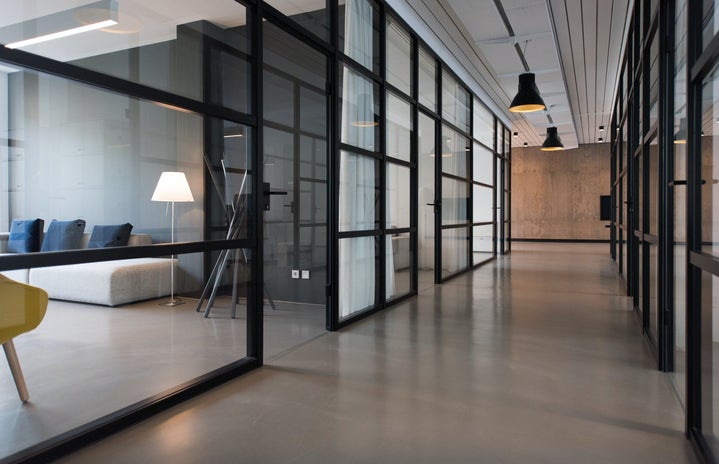It is officially Spring quarter at SCAD – the final quarter before students proudly waltz across the stage during graduation and commence the transition from broke students struggling to pay for textbooks to broke alumni struggling to pay Sallie Mae every month. Before this exciting transition, however, many students seek post-graduate opportunities around this time – whether it’s full-time employment or internships. This is the time that you may see students walking around campus in their Sunday’s best with coffee, portfolios and Kleenex in hand. This is when you know you are now at the most crucial point of the year for graduates; and that is, interview season.
While it is easy to put emphasis on nailing the interview, many people do not realize that what you do after the interview counts just as much if not more than the interview itself.
Here are some things you should remember to do after your interview to increase your chances of success:
1. Send a ‘Thank You’ Letter
Writing a brief ‘thank you’ to your prospective employer or interviewer says that you appreciate the company’s time to evaluate your work and for considering you as a prospective employee. Consider the letter a note you would write to a close friend after they have just given you an interview. The letter does not have to have extreme formality in presentation: it can be handwritten to give a personal touch and friendly form of expression to your interviewer. The important thing to remember is to keep it brief and be genuine in your language.
2. Send a Follow-up email
This is the opportunity to reiterate some of the points you gave in your interview and to make them better. Talk about why you would be a valuable asset to the company. Be formal in your language, but keep it brief. The key to the follow-up email is to not sound like you are begging for the job or internship, but to talk as if you have already been offered the job. You can use this opportunity to expand on a specific project that you have worked on or one you have in mind for the future. Use words and phrases, such as “I appreciate your time”, or “I await to hear from you”. This says to the employer that you are keenly interested in the position you seek and that you value the company.
3. Ask Questions
Asking questions in your follow-up email shows the employer that you want be well-informed about your position and the company itself. Of course, the key is to ask the right questions. Do not ask about salary and benefits you will receive just yet. Rather, ask about your role. Ask about the company’s history, but ask in a way that shows that you have background knowledge. For example, “When the company went public in 1993, was it an easy transition?” This says that you did research and you are interested in all of the nitty-gritty details about the company.
4. Don’t be annoying!
After you’ve sent these post-interview items, you do not have to interact with your employer again until you receive word from them on the status of your position. If you keep contacting them unnecessarily, your interest will be read as desperation and you will annoy the employer. Don’t be annoying.
5. Be careful with your social media
Chances are, if you made it to the interview stage, you were already pre-screened through your social media. You must keep in mind that employers have access to and can check your social media platforms constantly to see if you measure up to the company’s brand. You may want to delete that tweet where you trashed your interviewer for wearing that hideous floral blouse during the interview. You may also want to delete the instagram post of you bragging about your new mink coat if you are applying to be a representative at PETA. Be mindful that even when you think no one is watching, someone is always watching.


